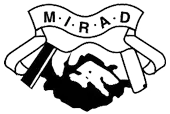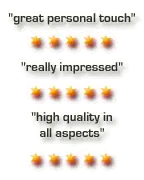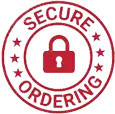Keeping the Roads Polite DVLA Bans Offensive Personalised Reg Plates in New 74 Series
Reg Plates ArticleKeeping the Roads Polite DVLA Bans Offensive Personalised Reg Plates in New 74 Series

The Driver and Vehicle Licensing Agency (DVLA), the authority responsible for vehicle registration in the United Kingdom, is cracking down on potentially offensive number plates with the release of the new "74" series. This move aims to maintain a civil and respectful atmosphere on British roads.
The full list of banned plates was revealed through a Freedom of Information request from the DVLA.
The DVLA has a long-standing policy of scrutinising potential registrations to prevent the issuance of reg plates deemed rude, provocative, or insensitive. This scrutiny covers a wide range of topics including violence, warfare, illegal activities, sexual references, and discriminatory language targeting race, gender, sexual orientation, and religion.
Curbing Violence and Aggression
A significant portion of the banned plates from the 74 series pertains to references of violence. These include combinations that could be interpreted as promoting or glorifying violence and further expanding the range of potentially offensive combinations.
Maintaining Civility and Respect
The DVLA's efforts extend beyond explicit references to violence. The banned list also includes plates that could be interpreted as offensive or insulting on racial, sexual, or gender-based grounds. These plates are not explicitly mentioned in the public interest of preventing further dissemination of such language.
Finding the Balance: Free Speech vs. Public Decency
The DVLA's approach to regulating number plates walks a tightrope between upholding freedom of speech and maintaining public decency. While some may argue that the ability to personalize a vehicle with a chosen registration is a form of expression, the potential for such plates to cause offence to others is a significant concern. The DVLA strives to strike a balance by allowing for personalization while filtering out plates that could be reasonably interpreted as hateful, threatening, or otherwise inappropriate for public display.
Public Perception and Enforcement
The DVLA's decision to ban certain plates has garnered mixed reactions from the public. Some support the move, acknowledging the importance of maintaining a respectful environment on the roads. Others criticise it as overly restrictive and an infringement on personal expression.
Enforcing these regulations is another challenge. While the DVLA withholds certain combinations from issuance, there's always the possibility of someone attempting to create an offensive plate through a less obvious combination. For instance, someone seeking a plate similar to the banned "BE74 END" might opt for "BN74 DNE" or another variation that achieves a similar meaning.
A Global Issue
The issue of regulating personalised plates is not unique to the UK. Many countries have similar regulations in place to prevent the issuance of offensive or discriminatory registrations. The specific banned combinations vary depending on the cultural and social context of each nation.
The Future of Personalised Reg Plates
The rise of personalised plates presents a continuous challenge for regulatory bodies like the DVLA. As technology advances and new combinations become available, the need for ongoing vigilance and adaptation remains crucial. Striking a balance between allowing for personal expression and maintaining public decency will likely remain a key consideration for the foreseeable future.
The DVLA's decision to ban certain "74" series reg plates highlights the ongoing effort to maintain a respectful and inclusive environment on British roads. While some may disagree with the specific banned plates or the overarching principle, the goal of promoting civility and preventing the spread of offensive language is a worthy one. As the landscape of personalised reg plates continues to evolve, the DVLA will likely face new challenges, requiring ongoing assessment and adaptation of its regulatory framework.
It all started back in 1991 when our love and obsession for private number plates was born.
Since then we have grown steadily over the years to become a leading light in the private number plate industry holding our own stock of high quality number plates and many thousands of registrations we are selling for trade and private clients including many celebrities and sports personalities.


- FREE TRANSFER SERVICE - your paperwork is handled by our trained team
- OVER 30 YEARS EXPERTISE - long established and trusted company
- DVLA RECOGNISED RESELLER - linked directly from the DVLA website
- TRADE ASSOCIATION MEMBERS - MIRAD and CN Guild members


